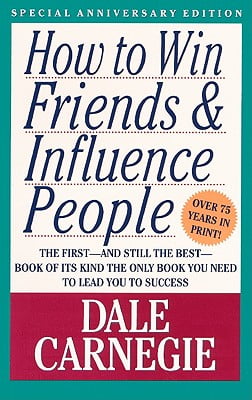

In conversations, Carnegie suggests that his readers be good listeners, encouraging others to talk about themselves. He also emphasizes the importance of remembering and using people’s names, because their name is more important to them than all other names combined. Additionally, dogs are always glad to see people, which brings Carnegie to his next point: the importance of smiling and staying positive when interacting with others. He holds that the same is true for people: it is much easier to make friends by becoming interested in others than it is by getting people interested in you.

Carnegie states that the reason dogs are so well-liked is because they are deeply interested in humans. Part 2 examines how to make people like you. And lastly, it’s important to make the other person want to do whatever you are asking of them-you have to talk in terms of what they want rather than what you want, and you have to show them how to get it. However, Carnegie makes a distinction between flattery and appreciation: flattery is insincere and selfish, whereas appreciation has to be genuine. Instead, you should “be hearty in approbation and lavish in praise.” People generally want a sense of importance, and so praising them helps feed that desire.

People rarely admit wrongdoing, and so criticism usually only puts people on the defensive. Part 1 of the book, which focuses on handling people, emphasizes the importance of not criticizing, condemning, or complaining about others. The book is split into four parts: techniques in handling people ways to make people like you how to win people over to your way of thinking and how to change people’s behavior without causing resentment. How to Win Friends and Influence People consists of material from Dale Carnegie’s lectures on business and personal relations.


 0 kommentar(er)
0 kommentar(er)
